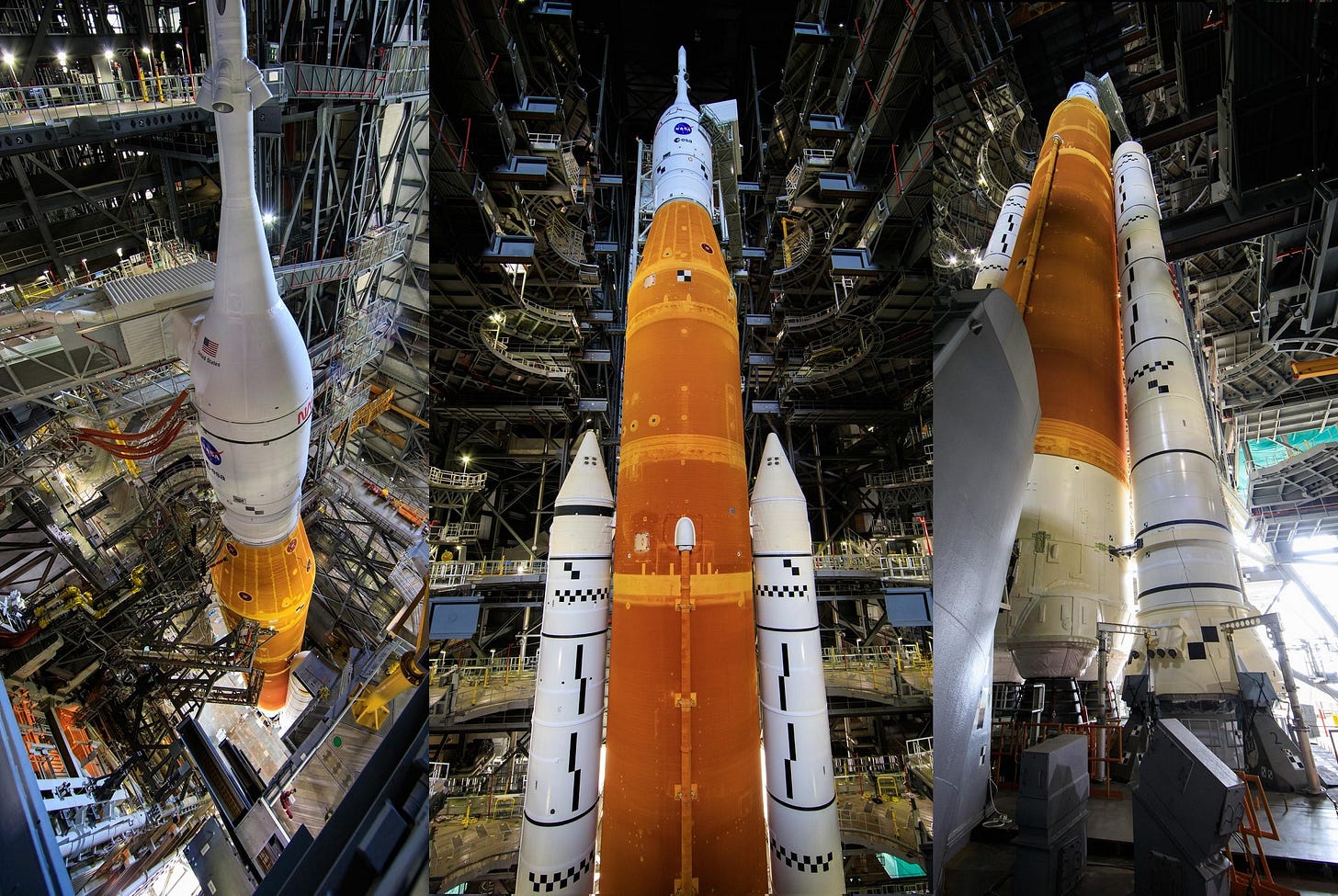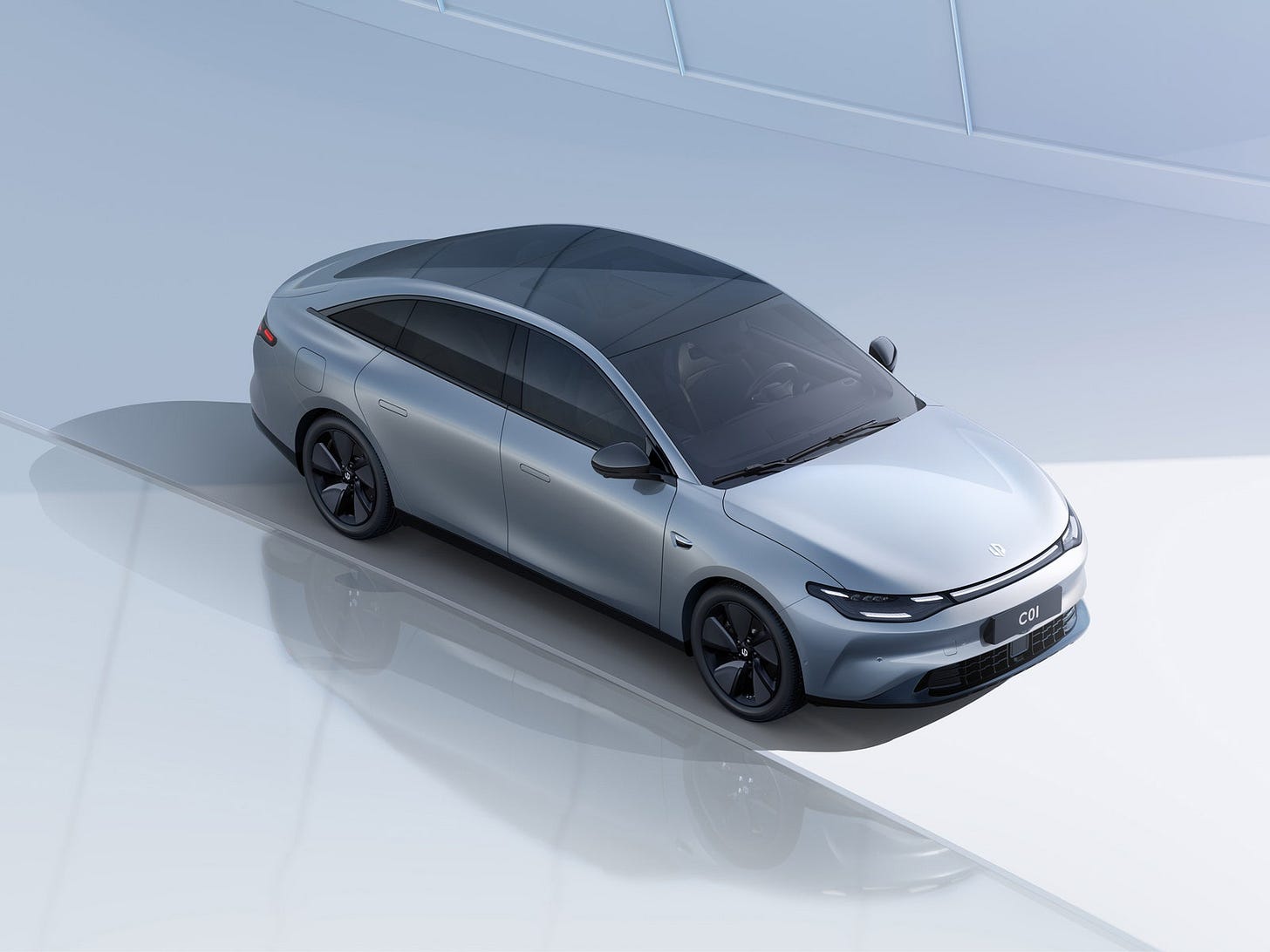Weekly Dose of Optimism #10
Artemis I pt. II, EVs & Batteries, Seabed Mining, Intelligent Tools, Passion & Pain, and Dude Where's My Flying Car?
Come for the Optimism, stay for the in-depth analyses of tech companies and trends:
Hi friends 👋,
Happy Friday! Welcome to our 10th Weekly Dose of Optimism. 10! Double digit optimism heading into the long weekend. It’s the Friday before Labor Day here — we hope you’re sneaking out of work early to kick off the holiday weekend.
Today’s Weekly Dose of Optimism is brought to you by… Notion
Not Boring runs on Notion — note taking, business planning, and general idea organization all live in the app. We’re not alone: people create some really useful and cool stuff in Notion, and we’d love to see it.
Reply to this email with a link to your most innovative, visually pleasing, and useful (publicly viewable) Notion pages, and in a few weeks, we’ll share out our favorites in this newsletter.
If you’re not using Notion today or you kind of are but are thinking of upgrading plans, check it out below. The product keeps getting better, and faster. Signing up through the Not Boring link supports the Weekly Dose of Optimism.
(1) NASA Sets Coverage for Artemis I Moon Mission Next Launch Attempt
From NASA
NASA is targeting 2:17 p.m. EDT on Saturday, Sept. 3, for the launch of Artemis I, the first integrated test of NASA’s Space Launch System (SLS) rocket, Orion spacecraft, and the ground systems at the agency’s Kennedy Space Center in Florida. There is a two-hour launch window for the next attempt.

Let’s give this another go — after a false start on Monday, in which flight controllers called off the launch due to engine issues, Artemis I is again attempting to launch this Saturday afternoon. Artemis I is an uncrewed mission around the moon, but it is important as it will pave the way for future human-crewed lunar expeditions. The last time humans stepped on the moon was in 1972, over 50 years ago. The Artemis program’s long-term objective is to establish a permanent base camp on the moon, which will help facilitate human missions to Mars. It all (hopefully) starts tomorrow with the launch of Artemis I, which you can watch live here.
(2) A New Approach to Car Batteries Is About to Transform EVs
Mark Andrews for Wired
Auto companies are designing ways to build a car’s fuel cells into its frame, making electric rides cheaper, roomier, and able to hit ranges of 620 miles.
A number of EV companies, including Tesla, are making key advancements on battery design. Specifically, the companies are coming up with innovative solutions to the “weight spiral” dilemma. All EVs want longer range — but longer range traditionally requires larger battery packs which increase the weight of the car, which in turn requires larger brakes, which then, of course, means larger wheels and so on and so forth. But Tesla and a number of Chinese EV companies have a solution to this issue: integrating the battery into the structure of the car so that the battery cells power the vehicle and serve as its skeleton. Cars utilizing this approach aren’t widely commercially available today, but the tech should be incorporated in vehicles hitting the road starting in 2023.
(3) Secret Data, Tiny Islands and a Quest for Treasure on the Ocean Floor
Eric Lipton for The New York Times

The Metals Company, based in Vancouver, has secured exclusive access to tons of seabed rocks packed with cobalt, copper and nickel — enough, it says, to power 280 million electric vehicles, equivalent to the entire fleet of cars in the United States.
Whether batteries are packed in compact cells or distributed through the skeleton of the car, EVs will still be powered by batteries containing cobalt, copper, and nickel. One Canadian mining company, The Metals Company, was granted the rights to mine a seabed that contains enough of the valuable chemical elements to power the next wave of the EV revolution. Seabed mining has recently become an even more urgent topic; China has increasing control over cobalt markets, and Russia is a major nickel supplier. Seabed mining offers an alternative source to these highly sought after resources. However, as the article details, the rights to the seabeds (and the ways in which these rights were secured) are not without controversy.
Elsewhere in EVs and batteries: This 17-Year-Old Designed a Motor That Could Potentially Transform the Electric Car Industry and Noah Smith dropped another banger, this time on the Decade of the Battery.
Nathan Baschez for Every

It’s becoming increasingly clear that the vast majority of useful AI is not about creating an artificial human personality. It is about creating tools that are endowed with intelligence, and capable of performing far more complex tasks than before.
DALL·E 2 and the handful of other newly released image generation tools have put AI at the forefront of tech prognostication once again. Our friend Nathan Baschez argues that humans are pretty bad at forecasting use cases for nascent technologies, while also predicting how AI will be used in the future. His case is rather believable: instead of powering human-like systems, AI will be most useful in creating “tools endowed with intelligence, and capable of performing far more complex tasks than before.” AI, according to Nathan, isn’t one big thing that will roll out and change the world in one fell swoop, but rather, a modular set of much more powerful tools that will take on increasingly complex tasks.
(5) 🎧 David Senra - Passion & Pain 🎧
From Invest Like the Best
First thing I do is wake up in the morning and I do an hour of some kind of physical activity, whatever you like to do. Then I work. I spend time with my kids. I spend time with my wife, and I talk to friends. Maybe have an hour or two, something that's fun. But really, work is my hobby, and that's the advantage I have over other people. Somebody listening might say, "Hey, I'm going to do a podcast on the history of entrepreneurship." Go ahead. You should. It's not like a zero sum game, but I'm only going to do this. I'm not going to start a fund. I'm not going to start another business. I'm only going to do this.
At Not Boring, we listen to hours of podcasts every week — most of it, to be honest, turns into background noise. A lesson here or a thread to unravel later there, but it is very rare that we drop everything we’re doing to listen to a podcast. Who falls in this category? Dan Carlin, of course. Acquired has become must-listen podcasting. Patrick O’Shaughnessy’s podcast, Invest Like the Best, is pretty damn close to appointment podcasting. Do not skip his episode with David Senra.
We somehow had never heard of David Senra prior to this podcast, but after listening, it feels like we’ve discovered some long-lost best friend. Senra is the host of the podcast Founders. Every week he reads a biography of an entrepreneur and finds ideas you can use in your work. We won’t get too much into the details on his ILTB episode — seriously, go listen to it for yourself — but the episode reminded us of an observation on optimism we’ve made ourselves: those most optimistic about the future have studied the past.
Bonus: Where Is My Flying Car?
By J. Storrs Hall via Stripe Press
I can’t recommend this book strongly enough. Go buy it, preferably in hardcover, and move it to the top of your reading list or whichever spot in your book pile means the book will actually get read. I have a feeling it’s going to be popping up a lot in future Not Boring essays.
J. Storrs Hall makes the case that we should have all sorts of things that pre-1960s sci-fi authors predicted we would, like flying cars, but a whole host of factors from declining per capita energy usage to lawyers to the Machiavelli Effect got in the way of progress. The good news is, it’s not too late. Hall lays out some pretty incredible potential futures available to us if we get our shit together.
Thanks to Dan for taking charge of the Weekly Dose while I’m on paternity leave!
Humans are pulling off some pretty incredible things every week. Whenever you find examples, share them here and we’ll feature some in the newsletter.
No post on Monday — enjoy the long Labor Day weekend!
Packy




Just ordered Where Is My Flying Car—thanks for the rec.
Would recommend Americana (by Bhu Srinivasan) in turn... based on your description of WIMFC, think Americana could be a prequel of sorts. Cheers!
Holy shit. Can't recommend the podcast with David Senra enough. Thank you *so much* for this, Packy/Dan.